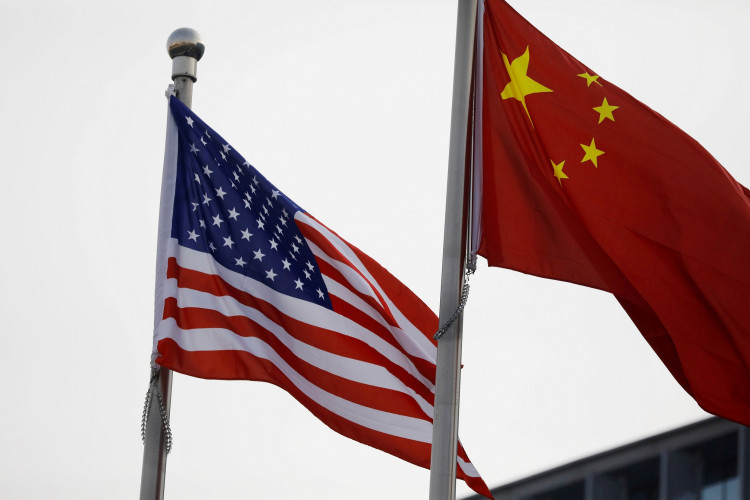The United States and China have agreed to a temporary 90-day pause in their escalating trade war, slashing tit-for-tat tariffs by up to 115% following high-stakes negotiations in Geneva. The agreement marks the most significant de-escalation in trade tensions since President Donald Trump imposed sweeping levies on Chinese imports earlier this year.
U.S. Treasury Secretary Scott Bessent announced the breakthrough on Monday, calling the talks "candid" and "respectful." He added, "The consensus from both delegations this weekend was neither side wants a decoupling."
Under the terms of the agreement, Chinese tariffs on U.S. goods will drop from 125% to 10%, while U.S. tariffs on Chinese goods will be reduced from 145% to 30%. The base U.S. tariff includes a 20% penalty introduced by Trump in April, specifically targeting China's role in supplying fentanyl-linked precursors.
"We concluded that we have shared interest and we both have an interest in balanced trade," Bessent said at a press conference. U.S. Trade Representative Jamieson Greer echoed the optimism, stating that the two sides had established "a positive path forward" and "substantial progress."
Chinese Vice Premier He Lifeng led the delegation from Beijing, calling the talks "constructive" and noting that "important consensus" had been reached on both trade and non-trade issues, including a consultation mechanism to address future disputes.
Stock markets in Europe and Asia rallied in response to the agreement. Germany's DAX index jumped 1.5%, led by auto manufacturers Mercedes-Benz and BMW, while France's CAC rose 1.2%. China's yuan surged to a six-month high on the announcement, which traders took as a signal that further de-escalation might follow.
"This is an unexpected achievement in Sino-U.S. tariff negotiations," said Wang Wen, head of the Chongyang Institute for Financial Studies at Renmin University. "However, this does not represent the resolution of structural contradictions between China and the United States."
The trade dispute, which began in earnest in April when Trump cited Beijing's failure to address fentanyl-related chemical exports, had pushed tariffs on key goods above 100% and severely disrupted trans-Pacific commerce. Beijing responded with retaliatory duties and non-tariff measures, including restrictions on exports of rare earth minerals critical to U.S. technology firms.
A spokesperson for China's Ministry of Commerce stated the agreement "meets the expectations of producers and consumers in both countries" and urged Washington to "completely correct the erroneous practice of unilateral tariff hikes."
Business leaders expressed cautious relief but warned that uncertainty persists. "While the Chamber is encouraged by the decision, uncertainty remains," said Jens Eskelund, president of the European Union Chamber of Commerce in China. "Businesses need predictability to maintain normal operations and make investment decisions."
William Xin, chair of Spring Mountain Pu Jiang Investment Management, called the agreement "far beyond market expectations." Speaking to Reuters, he said, "Previously, the hope was just that the two sides can sit down to talk. Now, there's more certainty. Both China stocks and the yuan will be in an upswing for a while."
A joint statement issued Monday emphasized "mutual openness, continuous communication, cooperation and mutual respect." Future negotiations are expected to alternate between locations in the U.S., China, or a third country.
"We do want trade, we want more balanced trade," Bessent said. "And I think both sides are committed to achieving that."





